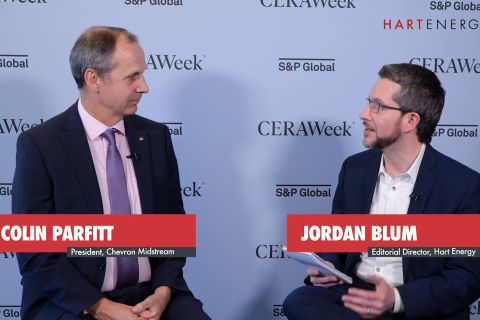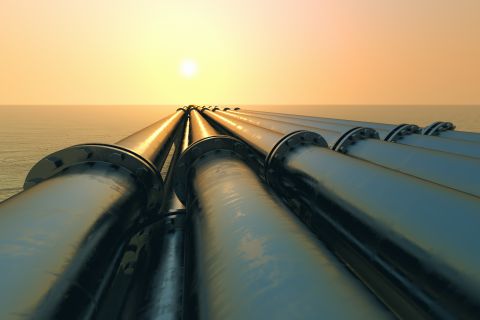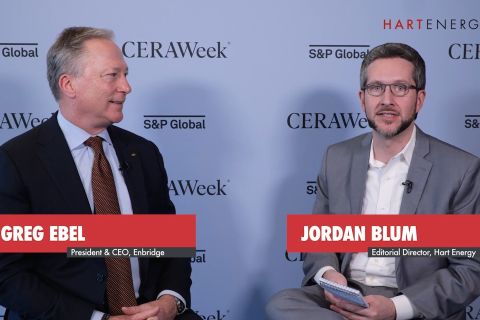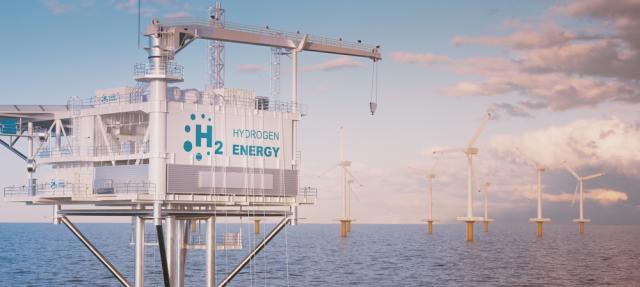
The Lhyfe-led consortium won a $21.8 million grant to build the world’s first large-scale renewable hydrogen production plant offshore. (Source: Shutterstock)
A consortium led by hydrogen producer Lhyfe has landed a $21.8 million, five-year grant from the European Commission to build what could become the world’s first large-scale renewable hydrogen production plant offshore.
The project, which involves nine companies, aims to demonstrate the technical and financial viability of large-scale hydrogen production in the North Sea. Hydrogen and fuel cell producer Plug Power, which is part of the consortium, said June 27 it will design and deliver a 10-megawatt (MW) proton exchange membrane electrolyzer system for the project.
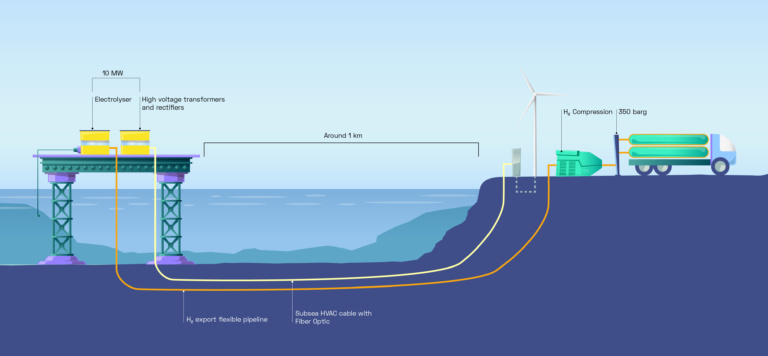
“Once successfully demonstrated, we anticipate private sector investments in offshore hydrogen production will accelerate,” Plug Power CEO Andy Marsh said in a news release.
Called Hydrogen Offshore Production Europe (HOPE), the project aims to produce up to four tons of green hydrogen per day in a testing zone off the Belgium coast. Production will rely on electricity supplied by power purchase agreements, with North Sea water being pumped, desalinated and purified for electrolysis use. Hydrogen will be transported via composite pipeline for delivery onshore in Belgium, northern France and southern Netherlands, according the release.
“HOPE is the first offshore project of this size in the world to begin actual implementation, with the production unit and export and distribution infrastructure due to come on stream in mid-2026,” said Lhyfe, which is coordinating the project and handling engineering, equipment procurement, production optimization and the export and distribution system.
Grants funds will be used for the project’s design phases, equipment, construction work and R&D focused on technology and infrastructure optimization, Lhyfe said.
Working with Plug Power, Lhyfe in 2022 pioneered the proof-of-concept for Sealhyfe, the world’s first floating offshore production. Powered by a 1 MW electrolyzer on a floating platform, the site off France has the capacity to produce up to 400 kg of hydrogen per day.
Recommended Reading
Exclusive: Chevron Balancing Low Carbon Intensity, Global Oil, Gas Needs
2024-03-28 - Colin Parfitt, president of midstream at Chevron, discusses how the company continues to grow its traditional oil and gas business while focusing on growing its new energies production, in this Hart Energy Exclusive interview.
Midstream Builds in a Bearish Market
2024-03-11 - Midstream companies are sticking to long term plans for an expanded customer base, despite low gas prices, high storage levels and an uncertain political LNG future.
Exclusive: Renewables Won't Promise Affordable Security without NatGas
2024-03-25 - Greg Ebel, president and CEO of midstream company Enbridge, says renewables needs backing from natural gas to create a "nice foundation" for affordable and sustainable industrial growth, in this Hart Energy Exclusive interview.
Shipping Traffic Freezes Up in Port Waters After Baltimore Bridge Collapse
2024-03-26 - U.S. port of Baltimore traffic was suspended until further notice following a bridge collapse. At least 13 vessels expected to load coal were anchored near the port at the time of the incident.
US Gulf Coast Heavy Crude Oil Prices Firm as Supplies Tighten
2024-04-10 - Pushing up heavy crude prices are falling oil exports from Mexico, the potential for resumption of sanctions on Venezuelan crude, the imminent startup of a Canadian pipeline and continued output cuts by OPEC+.

